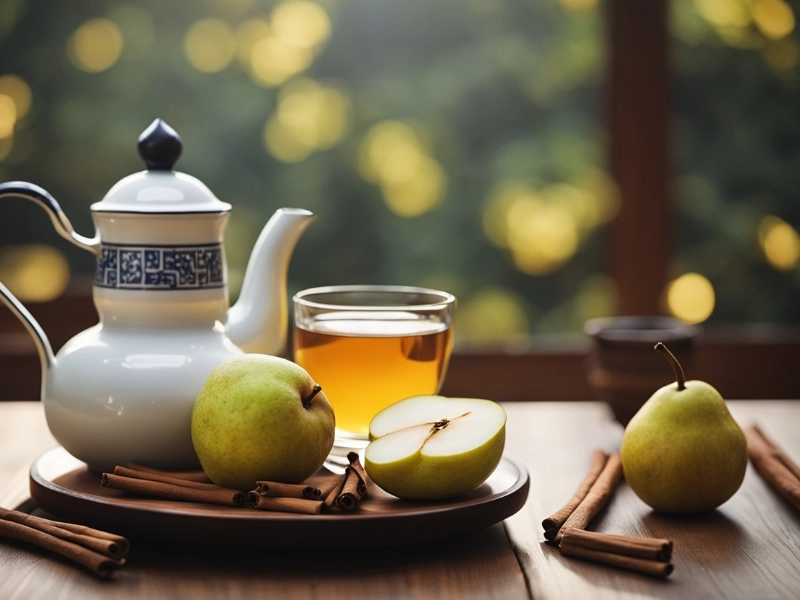7. The Cultural Significance of Pears in TCM

In Chinese culture and Traditional Chinese Medicine (TCM), pears have particular meaning since they stand for good fortune, longevity, and purity as well as luck. Popular fruit during holidays and celebrations, they are generally connected with health and sustenance. Beyond their health advantages, pears are culturally significant and sometimes presented as gifts to friends and relatives as a sign of prosperity and friendliness.
Pears are often eaten or used in mooncake fillings during the Mid-Autumn Festival, reflecting the notion that sharing food, especially nourishing fruits like pears, improves relationships and promotes well-being among loved ones. In Chinese society, where food is sometimes understood as a way of showing love and caring, this custom emphasises the value of community and connection.
Apart from their celebration significance, pears are often shown in traditional Chinese art and literature as a sign of peace and plenty. Over history, their lovely look and sweet taste have made them a beloved fruit. Understanding the cultural relevance of pears helps people to value their function not only in terms of health but also in terms of relationships building and commemorating of life events.
Even as contemporary medicinal techniques change, the wisdom of TCM about pears is still applicable now. Including pears in one's diet lets one honour this age-old custom and get the nutritious benefits. Pears have a great and symbolic link to Chinese history whether eaten fresh, cooked, or as part of cultural events.
Ultimately, pears represent cultural beliefs and customs handed down over the years rather than only a nutritious fruit. Understanding the cultural importance of pears in TCM helps people to increase their respect of this sweet fruit and its part in enhancing wellness and health.
Advertisement

